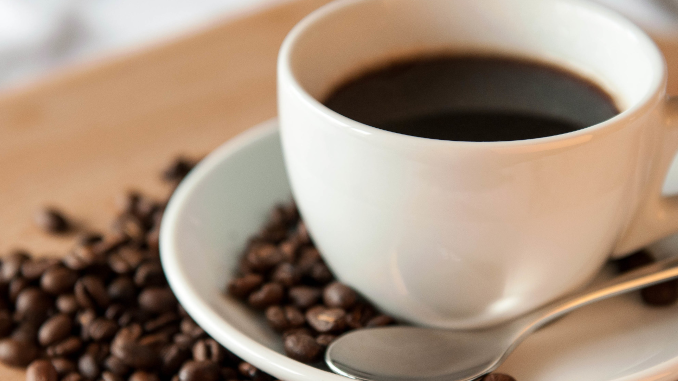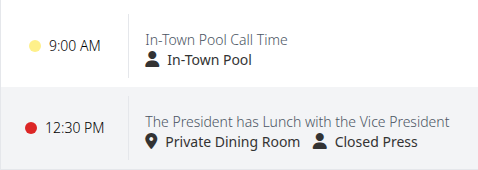
It’s Wednesday…
President Shitshow’s public schedule for…
Wednesday (08/27/2025):

Today’s gonna be a little different…
In special election news…
New – Iowa SD 01 – Election results
— Political Polls (@PpollingNumbers) August 27, 2025
🔵 Drey 55%
🔴 Prosch 46%
🔴 2024 Results – Trump (+12)
🔵 21% swing to Democrats pic.twitter.com/JbMi3IJlvY
In propaganda news…
'Powell's epiphany': Fed chair admits Trump was right about tariffs and inflationhttps://t.co/az8WUbwoLF
— Karoline Leavitt (@PressSec) August 27, 2025
Last Friday in Jackson Hole, Federal Reserve Chairman Jay Powell finally – and grudgingly – admitted what the Trump team has been saying all along: tariffs don’t fuel inflation.
At most, tariffs create a one-time adjustment in prices, not the kind of runaway spiral that demands punishing rate hikes. And even that one-time bump may be negligible if, as we have long argued, foreign exporters – not American consumers – shoulder most or all of the burden.
The implication is clear: whether the impact is zero or merely a one-time step-up in prices, there is absolutely no justification for the Fed to hide behind “tariff uncertainty” as an excuse for overly restrictive interest-rate policy.
This really is a historic epiphany from a Fed chair who has long misunderstood the power of Trumpnomics – the four beautiful horsemen of economic growth and price stability: tax cuts, deregulation, strategic energy dominance and fair trade.
It is an opinion piece written by Ron Varra aka Peter Narravo.
In case it wasn’t obvious, Powell did not all of sudden have an “epiphany” in his speech.
In his speech from Jackson Hole, this is what Powell said about the tariffs…
This year, the economy has faced new challenges. Significantly higher tariffs across our trading partners are remaking the global trading system. Tighter immigration policy has led to an abrupt slowdown in labor force growth. Over the longer run, changes in tax, spending, and regulatory policies may also have important implications for economic growth and productivity. There is significant uncertainty about where all of these polices will eventually settle and what their lasting effects on the economy will be.
[snip]
Turning to inflation, higher tariffs have begun to push up prices in some categories of goods. Estimates based on the latest available data indicate that total PCE prices rose 2.6 percent over the 12 months ending in July. Excluding the volatile food and energy categories, core PCE prices rose 2.9 percent, above their level a year ago. Within core, prices of goods increased 1.1 percent over the past 12 months, a notable shift from the modest decline seen over the course of 2024. In contrast, housing services inflation remains on a downward trend, and nonhousing services inflation is still running at a level a bit above what has been historically consistent with 2 percent inflation (figure 4).4
The effects of tariffs on consumer prices are now clearly visible. We expect those effects to accumulate over coming months, with high uncertainty about timing and amounts. The question that matters for monetary policy is whether these price increases are likely to materially raise the risk of an ongoing inflation problem. A reasonable base case is that the effects will be relatively short lived—a one-time shift in the price level. Of course, “one-time” does not mean “all at once.” It will continue to take time for tariff increases to work their way through supply chains and distribution networks. Moreover, tariff rates continue to evolve, potentially prolonging the adjustment process.
It is also possible, however, that the upward pressure on prices from tariffs could spur a more lasting inflation dynamic, and that is a risk to be assessed and managed. One possibility is that workers, who see their real incomes decline because of higher prices, demand and get higher wages from employers, setting off adverse wage–price dynamics. Given that the labor market is not particularly tight and faces increasing downside risks, that outcome does not seem likely.
Federal Reserve.gov. 08/22/2025.
In Subway Sandwich thrower news…
Breaking News: Prosecutors failed to secure an indictment against a man who threw a sandwich at a federal agent in Washington, D.C., people familiar with the matter said. https://t.co/YUKVZDQZLe
— The New York Times (@nytimes) August 27, 2025
Federal prosecutors on Tuesday were unable to persuade a grand jury to approve a felony indictment against a man who threw a sandwich at a federal agent on the streets of Washington this month, according to two people familiar with the matter.
The grand jury’s rejection of the felony charge was a remarkable failure by the U.S. attorney’s office in Washington and the second time in recent days that a majority of grand jurors refused to vote to indict a person accused of felony assault on a federal agent. It also amounted to a sharp rebuke by a panel of ordinary citizens against the prosecutors assigned to bring charges against people arrested after President Trump’s deployment of National Guard troops and federal agents to fight crime and patrol the city’s streets.
The rejection by grand jurors was particularly noteworthy given the attention paid to the case of the man who threw the sandwich, Sean C. Dunn. Video of the episode went viral on social media, senior officials talked about the case, and the administration posted footage of a large group of heavily armed law enforcement officers going to Mr. Dunn’s apartment.
New York Times (gift link). 08/27/2025.
In immigration news…
BREAKING: Kilmar Abrego Garcia's lawyers say he wants to seek asylum in the United States. https://t.co/bXLw92sre8
— The Associated Press (@AP) August 27, 2025
A U.S. immigration judge denied his request for asylum in 2019 because he applied more than a year after he had fled to the U.S. He left El Salvador at the age of 16, around 2011, to join his brother, who had become a U.S. citizen and was living in Maryland.
[snip]
Xinis will not rule on whether Abrego Garcia receives asylum or is deported. She is overseeing Abrego Garcia’s lawsuit to ensure that he can exercise his constitutionally protected rights during a process that his lawyers say should include immigration court proceedings and appeals.
AP News. 08/27/2025.
This is wrong. The ONLY reason Kilmar Abrego Garcia was not eligible for asylum in 2019 was the one year filing deadline — the requirement that a person apply for asylum within one year of entry.
— Aaron Reichlin-Melnick (@ReichlinMelnick) August 27, 2025
Now that he left the country and has newly reentered the US, that isn’t an issue. https://t.co/VU7r53AiF3
In heartbreaking news…
Two children were killed and at least 17 people injured after a gunman opened fire during a Catholic school mass, police say. The shooter is dead. Follow live updates:https://t.co/hoCTlRb5fd
— CNN Breaking News (@cnnbrk) August 27, 2025
The mayor:
Frey: There are no words that can capture the horror and the evil of this unspeakable act. Children are dead. Their families that have a deceased child. You cannot put into words the gravity, the tragedy or the absolute pain of this situation pic.twitter.com/am2VPbaOuw
— Acyn (@Acyn) August 27, 2025
The governor:
I’ve been briefed on a shooting at Annunciation Catholic School and will continue to provide updates as we get more information. The BCA and State Patrol are on scene.
— Governor Tim Walz (@GovTimWalz) August 27, 2025
I’m praying for our kids and teachers whose first week of school was marred by this horrific act of violence.
